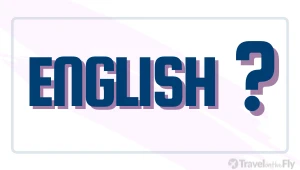As you try to tell others how well you speak English it can be helpful to learn useful spoken expressions that will accurately communicate to others how well you speak English.

I will cover here a few expressions you can use when attempting to describe your level of English proficiency.
Here are some words and phrases that can be used to describe your level of language proficiency in English or in any other language. How would you describe your level of English proficiency?
In the case somebody asks you a question like ‘How well do you know English? ‘, ‘What is your level of English ? ‘, or ‘How good are you at English?’, you can simply answer ‘I know English well” or any of the following:
- Give a brief description of your general language skills, or
- Describe your capabilities of this language, or
- Indicate your language proficiency level in accordance with the CEFR
Describe your native language
“The language I speak natively is…”
- Originally from Denmark, she speaks Danish fluently.
- Spanish is my native language.
- In addition to being a native speaker of German, she is also fluent in French.
When you are able to speak two languages at a native-like level of proficiency, you are considered to be BILINGUISTIC.
The term POLYGLOT can be used as a term to describe one who knows more than four or five foreign languages.
Among the polyglots I know, one can speak 15 languages fluently!
NOTE:
A lot of people say ‘I speak in Spanish or ‘I speak in Italian.
Native English speakers don’t normally use “IN” that way.
The grammatically correct way to say it would be: ‘I speak Spanish or ‘I can speak Italian as well, ‘I can also speak English.
Defining levels of language proficiency according to the Common European Framework of Reference for Languages or CEFR
Language proficiency in the CEFR is classified into three levels:
1 – Basic User (A1-A2) / Beginners’ Level, Elementary Level, and Pre-intermediate Level
2 – Independent User (B1-B2) / Upper-intermediate and Intermediate
3 – Proficient User (C1-C2) / Expert or Advanced
You could get help from a teacher if you’re unsure as to what this means or if you need a recommendation if you’re unsure.
There are a few phrases that describe what you are capable of doing
- “I’m rusty with my Spanish at the moment, so I might have to spend some time putting words and phrases together to make sense.” Rusty simply means that it isn’t fresh.
- “It is possible for me to hold a basic conversation.” – You are able to converse about simple everyday topics using basic English.
- “I studied a little French in high school, but I don’t speak it very well or fluently.”
- “I think I could improve my vocabulary in Italian.” “I would like to improve my English speaking skills.”
- “I wish I spoke English more fluently.”
- “I can get by in English.” – If you think you need something from the store or a restaurant, you can ask what they have available in this language.
- “As a native German speaker, I know a few words in German.” = “I know a few German words.”
- “My proficiency in English is close to that of a native speaker.”
- “My native language is Spanish, but I also speak English.”
- “Being trilingual is one of my strengths.”
- “I speak more than one language.”
- “My native language is English.”
- “Spanish is my first language.”
How do you measure English proficiency?
To measure the effectiveness of your English, you can use the TOEFL score, or Test of English as a Foreign Language.
There are a few other ways by which you can start, such as the TOEIC score. Generally, language scores are tested to determine whether or not they can be mastered, so that one can then use them as a starting point.
Provide information about how you are proficient in the general language (CVs, autobiographies, etc.)
The level of your language skills can be classified as Basic, Conversational, Fluent, or Proficient depending on your context.
Basic – If you know some phrases in this language, you will be able to communicate on simple topics.
Conversational – This is an ability to use a language such that enables you to communicate on everyday topics with minor grammatical and vocabulary errors, but you will not be able to write.
Fluent – In order for you to be a fluent speaker, your vocabulary and grammar are good and you are able to express ideas without hesitation. You both speak and write well, so people easily understand you.
Proficient – The difference between proficient and fluent is that proficient has you understand the structure of the language and you can express this understanding to other people. If you are proficient, you are also able to use idiomatic expressions and understand the accent of the locals.
Written or Spoken?
You also want to consider if it is written or spoken English. If you are focusing on one you might want to make sure that you communicate how well you do both. There is usually a difference in your ability to communicate in one way or another for each of the languages you know.
It’s okay. Now that you are up, how are you doing? What can you do in English? How well do you understand English?
